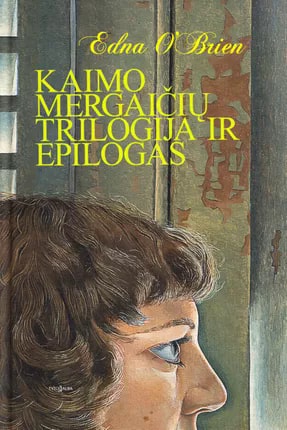


© Tyto Alba, 2008
The famous trilogy follows the lives of heroines Kate Brady and Baba Brennan as they struggle to find a place for themselves, first in Irish, then in British society. It comprises in one volume O'Brien's first three novels, published between 1960 and 1964, which combine an unusual frankness and sensitivity with beautiful prose.
The Country Girls, O'Brien's literary début, tells the story of Caithleen and Baba's adolescence and coming of age. Growing up in Co. Clare, the two unlikely friends are brought closer together when Cait's mother drowns in a mysterious accident and her alcoholic father has to sell the family farm. Sent to a convent boarding school together, meek Cait quickly adapts and excels, while lively Baba suffers from boredom so severe, she devises a plan to get them both expelled. With the convent doors firmly shut behind them, the two girls' next stop is Dublin. Soon, they discover that the freedom the city has to offer young women comes at a price. Whereas pragmatic Baba plays the game with gusto, strategically choosing her partners, Cait remains a hopeless romantic, saving herself up for a 'Mr. Gentleman'. In the end, he will let her down, and Caithleen will have to learn to go her way alone.
In The Lonely Girl, she discovers the exhilaration of passion - and the consequences of falling in love with a married man, a Protestant to boot. When the news reaches her drunkard father, he kidnaps her and locks her up. Once again, Cait's situation seems doomed.
Girls in their Married Bliss rejoins the two friends in London years later. Caithleen has changed her name to neutral 'Kate', and is married to Eugene, the cause of all her troubles in the second part. Feeling increasingly alienated from him, she begins an affair. Eugene's terrible revenge for her unfaithfulness sends her back to her old friend Baba for support. But Baba, the bored trophy wife of builder Frank, has enough problems already without having to cure Kate of her self-pity and indefatigable romanticism. United in their dissatisfaction, the two women have to find a way to play out the tragicomedy of their married lives to its surprising conclusion.
Farrar, Straus and Giroux 1986
Translated into: Lithuanian
Farrar, Straus, and Giroux
Attention: Subsidiary Rights Department
18 West 18th Street
New York, NY 10011
United States
Email: rights@fsgbooks.com
Website: http://us.macmillan.com